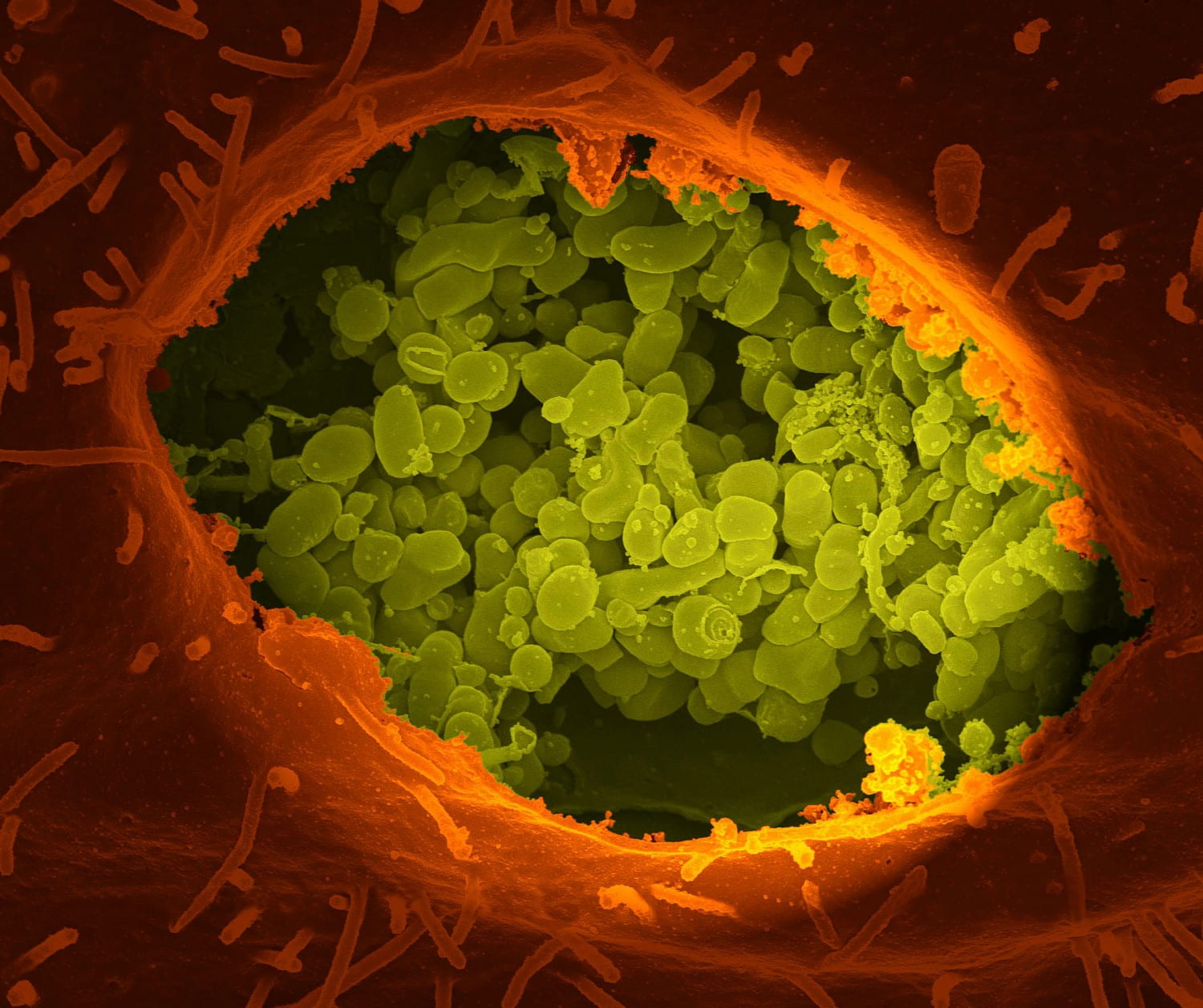UCI scientists receive $8 million to help develop Q fever vaccine
Federally supported effort is aimed at mitigating bioterrorism threat

Irvine, Calif., March 28, 2016 — A University of California, Irvine scientific team led by infectious diseases researchers Philip Felgner and Aaron Esser-Kahn has received $8 million from the U.S. Department of Defense’s Defense Threat Reduction Agency to help develop a new vaccine for Q fever.
Caused by the Coxiella burnetii bacterium, Q fever is a highly infectious agent common among livestock. It has a history of being aerosolized for use in biological warfare and is considered a potential bioterrorism weapon.
Q fever is also a public health threat; a 2007-10 outbreak in the Netherlands affected thousands of people. Symptoms include high fever, nausea, severe headache and abdominal pain. It is rarely fatal.
“The current vaccine for Q fever is effective but has severe side effects that limit its widespread use,” said Felgner, an adjunct professor of medicine at UCI. “It’s a high priority that this vaccine be administered to members of the armed forces. Consequently, the military is interested in developing an alternative protective vaccine that’s safer and does not cause adverse reactions.”
Felgner will use an approach he pioneered at UCI to create whole proteome microarrays to discover immune response-activating antigen proteins that may be effective as a vaccine. Additionally, he’ll collaborate with Esser-Kahn, assistant professor of chemistry, whose group will develop synthetic agents that can boost and control the immune response to these proteins.
Felgner said this dual method may be applicable in creating more vaccines important to the military and general public health, adding that this is an opportunity for the Department of Defense to test these methods for their potential use against other infectious diseases.
After identifying the target proteins, Felgner will work with the U.S. Army Medical Research Institute of Infectious Diseases at Fort Detrick in Maryland on next-stage animal studies of a candidate vaccine.
The project is a successful outgrowth of the Pacific Southwest Regional Center of Excellence, one of only 11 National Institutes of Health-funded research sites dedicated to countering threats from bioterrorism agents and emerging infectious diseases. UCI received $85 million for this effort, which was led by Dr. Alan Barbour, professor of microbiology & molecular genetics. The federal program ended in 2015.
About the University of California, Irvine: Currently celebrating its 50th anniversary, UCI is the youngest member of the prestigious Association of American Universities. The campus has produced three Nobel laureates and is known for its academic achievement, premier research, innovation and anteater mascot. Led by Chancellor Howard Gillman, UCI has more than 30,000 students and offers 192 degree programs. It’s located in one of the world’s safest and most economically vibrant communities and is Orange County’s second-largest employer, contributing $4.8 billion annually to the local economy. For more on UCI, visit www.uci.edu.
Media access: Radio programs/stations may, for a fee, use an on-campus ISDN line to interview UC Irvine faculty and experts, subject to availability and university approval. For more UC Irvine news, visit wp.communications.uci.edu. Additional resources for journalists may be found at communications.uci.edu/for-journalists.